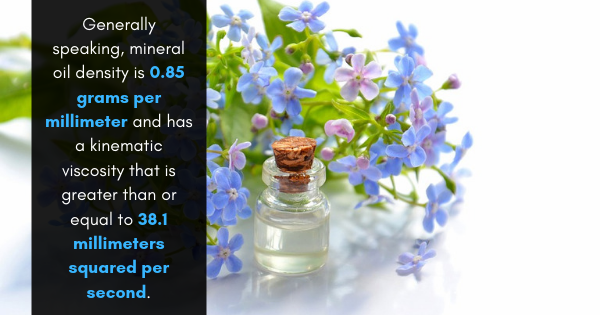Throughout the United States, countless industries rely on white mineral oil suppliers to provide the materials needed for final production. Whether you work in the industrial sector, have your own cosmetics line, or operate a food processing plant, white mineral oil suppliers will likely play an essential role in your operations. But what exactly is white mineral oil and why is it used? We’ll answer some of the most common questions base oil suppliers receive pertaining to this type of oil in today’s post.
What Exactly is White Mineral Oil?
White mineral oil is a tasteless, odorless, and colorless liquid that’s used in a wide array of applications. White mineral oils have different chemical makeups and are generally complex in structures, but typically include mixtures of paraffinic, napththenic, and acrylic saturated hydrocarbons. Renoil White Oils, for example, are a mixture of saturated paraffinic and napthenic hydrocarbons. In general, mineral oil will usually contain between 15 and 40 of these hydrocarbons. Because of its lack of distinctive physical properties, white mineral oil can easily be used as an additive in any number of ways without compromising the color, scent, or flavor of the final product. It’s often used as a lubricating element, but it’s also utilized as a coolant, as a sealant, and as a binder in different applications.
What Are the Features and Benefits of White Mineral Oil?
Generally speaking, white mineral oil density is 0.86 grams per millimeter which is lighter than water at 1.0. The kinematic viscosity at 40°C ranges from 10 to 280 cSt. Alternatively, in Saybolt Universal Seconds (SUS) viscosity range is 60 to 1500 SUS at 100°F. White mineral oils are insoluble in water and are virtually free of oxygen, nitrogen, and sulfur. Because of their high initial boiling point (420°C) and low flammability rating, these oils are not considered to be a fire risk.
One of the obvious benefits of white mineral oils is their versatility. They can be used in a wide range of applications (which we’ll discuss below) and can be added without compromising the quality of a product. Mineral oil has a high degree of purity, making them an attractive option for all kinds of products that require additional lubrication, sealing, binding, or other chemical additions but that cannot be changed by any ingredients that are added into the mix.
Another important advantage to highlight is their safety. White mineral oils are food grade, meaning that they meet standards outlined by the U.S. Food and Drug Administration and can be safely used in food and cosmetic production. In some cases, these oils can even receive kosher and halal certifications. Although all chemicals must be handled using the proper precautions, when mineral oil is utilized as directed, it is safe for use. As a bonus, it’s also non-comedogenic and will not support pathogenic bacterial growth.
How Are White Mineral Oils Used?
As we’ve mentioned, white mineral oils are extremely versatile and are safe for direct contact with food and skin. Therefore, they’re used in countless applications. These are just some of the ways white mineral oil can be used:
- Food Processing
- Pharmaceuticals
- Cosmetics
- Mechanics and Electronics
- Automotive Applications
- Fabric and Rubber Manufacturing
- Metal Fabrication
- Biotech and Laboratory Research
Whether you need a reliable dough divider agent and a way to keep food wrappings crisp in your factory or plan to develop a body lotion and a water-resistant makeup product as part of a new line, white mineral oil can be one of the most effective ways to accomplish your goals and to safeguard the quality of your product at the same time.
Now that you understand more about white mineral oil and how it’s typically used, you’ll be in a better position to make a decision pertaining to the products you need from your base oil suppliers. To learn more about what makes our Renoil White Oil an ideal solution for your business, please contact us today.

